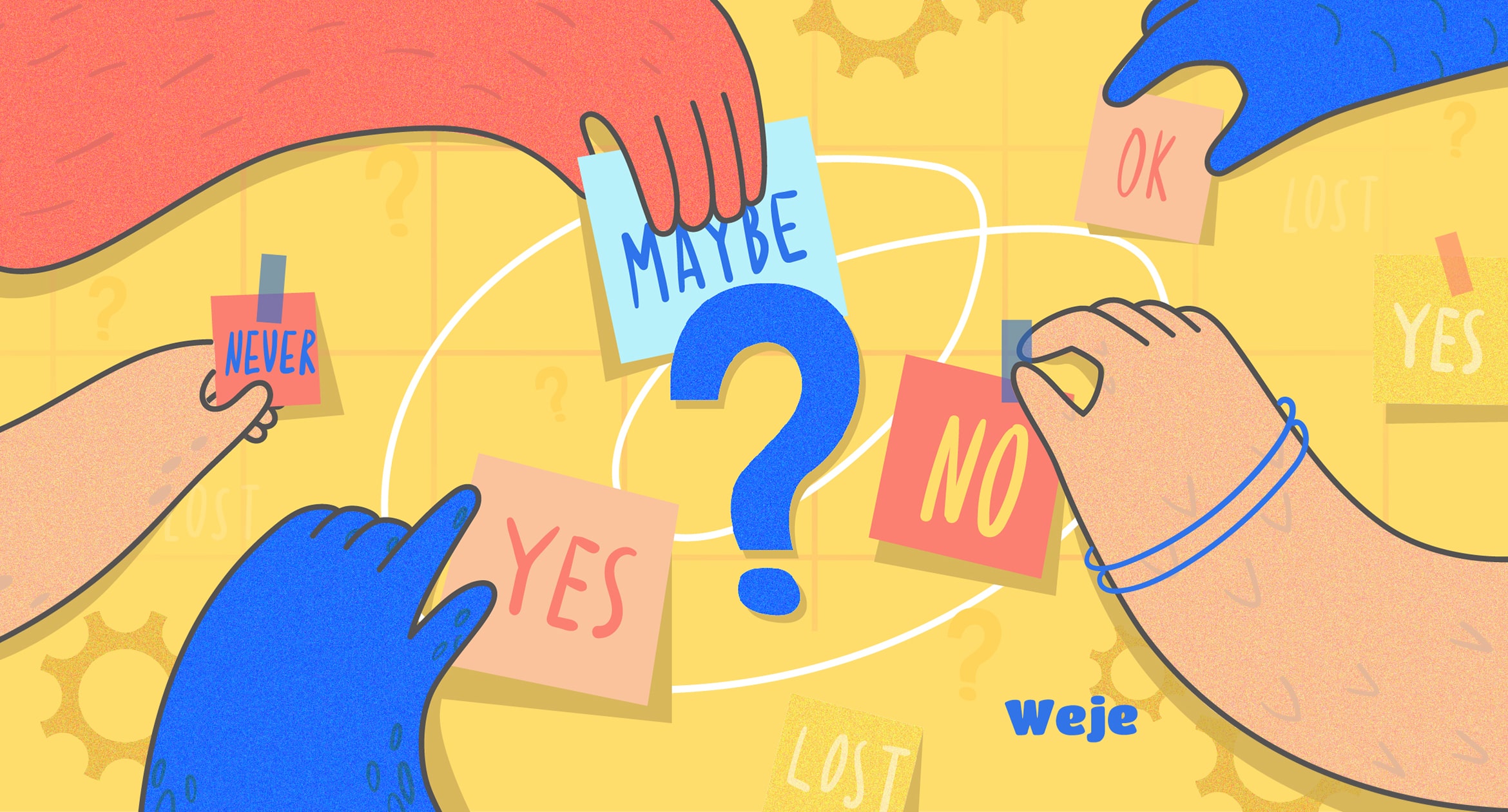During a decision-making process, especially crucial ones, it is wise to take your time and don’t rush. This approach is valid and natural. But the problem occurs when you are unable to weigh all the options and spend too much thinking about the consequences; and end up nothing but wasting your valuable time. The situation is common, and this overthinking condition is known as analysis paralysis.
In this read, we will take a detailed look at analysis paralysis, its effects on productivity, causes, and how to overcome this condition.
Analysis paralysis definition and meaning
Analysis paralysis, also known as “paralysis by analysis” is the state of overthinking or over-analyzing any circumstances so that a decision or action gets too much delayed or never taken, and paralyzes the outcome. Or as Barry Schwartz called this as the paradox of choice.
To simplify, a person going through analysis paralysis becomes lost in analysis and evaluating various ideas or information required to make a decision that becomes impossible to act and affects the outcome.

Why do people tend to overthink while making decisions?
To understand why people often experience this situation or overthink, first, you will have to understand how people usually make decisions.
During an interview, the American psychologist Herbert Simon clarified the matter and mentioned that most people make decisions in two ways:
Some people satisfice. These are the ones who pick the option first as per their exact needs or choose the way that seems to address their needs in the most efficient way.
Others tend to maximize. These are the ones who don’t settle for the available way out. Instead, they keep trying for any other and better solutions.
Among these two groups, maximizers are the ones that often overthink during the decision making process in the hope of getting a much better offer, solution, or deal and often suffer from analysis paralysis.
Furthermore, many medical studies have proved that most people overanalyze things to defend their possible failure. When it’s the time to act or make a decision, they overthink and prolong things or delay their actions to prevent making a wrong choice.
It is also seen that many people become prey to the abundant to options. The more data and stats available, it becomes difficult for many people to make decisions. When the data and information from various sources reaches a person’s verge, the brain’s capability to process it drops and the person becomes paralyzed during the process.
Many of us think that gathering huge data or too many stats helps in decision making. But this doesn’t work most of the time and not for all. Instead, the abundance of data and information makes them paralyzed.
Difference between good decision making and analysis paralysis
“Life is a matter of choices, and every choice you make makes you.” —John C. Maxwell
How can you differentiate between good decision-making and analysis paralysis? Is it even possible? Usually, all decision-making processes include creating a list of the range of possibilities and a variety of options. Then, our brain starts to narrow down the list, eliminating all the options and choices that might be irrelevant or unsuitable. This elimination process happens in a short duration. However, it is hard to determine the exact time frame, but the process is quick.
But things are not the same when a person experiences analysis paralysis. They get stuck in all the available options and possibilities. Their brain feels ever-expanding and endless options, and they all feel equal and probable. It’s quite common to feel overwhelmed when you have to pick the right option from so many different options. If you think that all these options are based on merits, they can’t be equal, and this shuts down the whole decision-making process.
What are the possible causes of analysis paralysis?
The first to understand is why you often have problems in making choices. Think about the following:
Did any previous decision of yours didn’t go well? And that incident still resonates. If that is the case, it means you cannot trust your capabilities and find it hard to make the right decisions.
Furthermore, many people are more concerned about what people will think when making a certain choice. They often feel that wrong decision will affect their future or relationships with others. Things get even worse if they are making a decision that affects other people.
But, if you often spend too much time evaluating and analyzing choices for nearly every decision you have to make, this is the analysis paralysis, and you must increase your awareness of why this happens with you. You should try to break the pattern.
How to overcome analysis paralysis
Prioritize your decisions
Treating all decisions in the same way, impacts your overall productivity and causes analysis paralysis. The first step to overcome analysis paralysis is knowing the important decisions and giving them attention first. Then move on to the remaining ones.
When making decisions, ask yourself these simple questions:
How important is the decision for you?
Will its result affect the business or product development?
Is it essential to make the decision at the moment?
What will be the side effects if the decision goes wrong?
Know the objective for making each decision
Often the main cause for our incapability to make decisions is not the risks of failures, neither is it due to the abundance of options; quite often, we simply don’t know why we are unable to decide. In such a case, know the goals for making each decision as it will make it simpler for you to choose the right option. In business scenarios where the stakes are high and leadership is overwhelmed, bringing in a fractional executive — a seasoned professional who works on a part-time or contract basis—can provide the strategic clarity and confidence needed to break decision deadlocks and move forward efficiently.
Break all decisions into steps
Don’t try to take a decision in one big step; instead, consider breaking it into smaller steps to make the process hassle-free. Diverting your attention from that one big decision to multiple smaller steps as you can tackle small ones efficiently and it will also help to break the paralysis of making one big and significant decision.
You can also test your ability to make small life decisions quickly. For example:
- Try to choose a restaurant for dinner without anyone’s help or reading reviews.
- Go on a walk but don’t choose any specific route. Instead, only follow your feet.
- Select the first TV show that grabs your attention rather than spending time thinking about what to watch.
You will feel a bit of anxiety, but bear it and keep flowing. Give yourself some time to play with quick, decisive actions with minor consequences. It will be fun and improve your decision making.
Keep the perfection aside
If you are not making a life-changing decision, there is no need to think about perfection. At times, going for a “good-enough” one is the best decision. Remember that every decision has some sort of side effects. Don’t let this point affect your progress.
Put a little bit of pressure on yourself or your group
Most people work better under pressure and if you are among those, set a deadline by which you should make the decision. If you are working with a team, schedule a meeting to address the problem. Make it clear to other team members that there will be no other meeting relating to it, and they have to make a decision. Pressure can do wonders for some, and it might work for you; who knows.
Published: April 13, 2021




